
Turmi: The Cultural Heartbeat of Southern Ethiopia
Turmi is a small town located in the Southern Nations, Nationalities, and Peoples' Region of Ethiopia. It is renowned for being the home of the Hamar people, one of the most prominent tribes in the Omo Valley. The town serves as a vibrant hub of cultural activity, offering visitors a unique glimpse into the traditional ways of life that have been preserved over centuries. Every Monday and Saturday, Turmi hosts bustling markets where the Hamar people gather to trade goods, socialize, and display their rich cultural heritage. These markets are a sensory feast, filled with the sounds of bartering, the vibrant colors of traditional clothing, and the tantalizing smells of local foods. For those interested in photography, the markets provide endless opportunities to capture the essence of Hamar culture. One of the most fascinating aspects of Turmi is the traditional Bull Jumping Ceremony, a rite of passage for young Hamar men. This event is not only a critical cultural ritual but also an incredible spectacle for visitors. Witnessing this ceremony offers a deep understanding of the community's values and social structures. Aside from its cultural attractions, Turmi is also a gateway to exploring the stunning landscapes of the Omo Valley. The area is rich in diverse flora and fauna, making it an excellent destination for nature enthusiasts. Guided tours can take you to various tribal villages, where you can learn about the different ethnic groups that inhabit the region and their unique customs and traditions.
Local tips in Turmi
- Visit Turmi during market days (Monday and Saturday) to experience the local culture at its liveliest.
- Ensure you have a local guide to help navigate the cultural nuances and enhance your understanding of the Hamar traditions.
- Respect local customs and always ask for permission before taking photos of people.
- Wear comfortable clothing and sturdy shoes, as the terrain can be uneven and dusty.
- Bring cash, as credit cards are rarely accepted in local markets and shops.
Turmi: The Cultural Heartbeat of Southern Ethiopia
Turmi is a small town located in the Southern Nations, Nationalities, and Peoples' Region of Ethiopia. It is renowned for being the home of the Hamar people, one of the most prominent tribes in the Omo Valley. The town serves as a vibrant hub of cultural activity, offering visitors a unique glimpse into the traditional ways of life that have been preserved over centuries. Every Monday and Saturday, Turmi hosts bustling markets where the Hamar people gather to trade goods, socialize, and display their rich cultural heritage. These markets are a sensory feast, filled with the sounds of bartering, the vibrant colors of traditional clothing, and the tantalizing smells of local foods. For those interested in photography, the markets provide endless opportunities to capture the essence of Hamar culture. One of the most fascinating aspects of Turmi is the traditional Bull Jumping Ceremony, a rite of passage for young Hamar men. This event is not only a critical cultural ritual but also an incredible spectacle for visitors. Witnessing this ceremony offers a deep understanding of the community's values and social structures. Aside from its cultural attractions, Turmi is also a gateway to exploring the stunning landscapes of the Omo Valley. The area is rich in diverse flora and fauna, making it an excellent destination for nature enthusiasts. Guided tours can take you to various tribal villages, where you can learn about the different ethnic groups that inhabit the region and their unique customs and traditions.
When is the best time to go to Turmi?
Iconic landmarks you can’t miss
Unity Park
Explore Unity Park in Addis Ababa, a vibrant blend of gardens, art, history, and culture amidst Ethiopia's urban landscape.
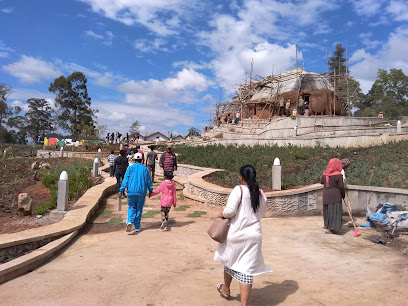
Meskel Square
Discover Meskel Square, a cultural hub in Addis Ababa, where history, tradition, and vibrant local life converge in a bustling landmark.
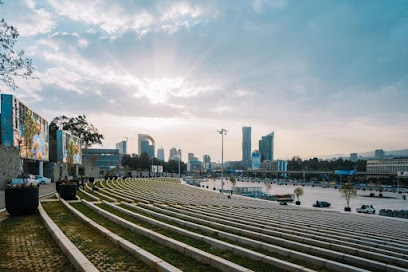
Fasil Ghebbi
Explore the enchanting Fasil Ghebbi in Gondar, a UNESCO World Heritage Site showcasing Ethiopia's majestic royal history and stunning architecture.
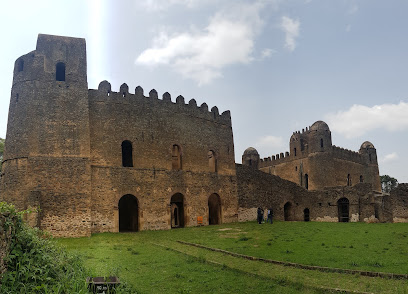
Simien Mountains National Park
Explore the majestic Simien Mountains National Park, a UNESCO World Heritage Site, where stunning landscapes and unique wildlife await every adventurer.
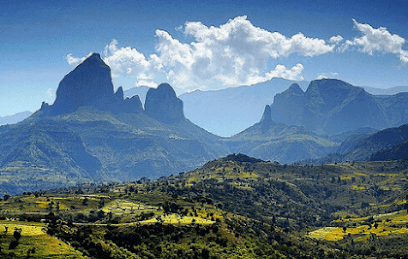
Debre Birhan Selassie Church
Explore the stunning frescoes and rich history of Debre Birhan Selassie Church, a highlight of Gondar's architectural heritage and spiritual significance.
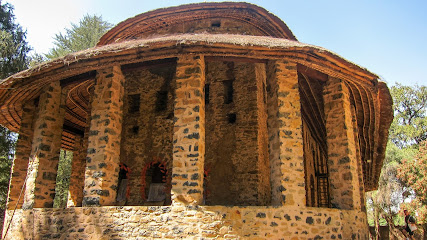
Rock-Hewn Churches, Lalibela
Discover the breathtaking Rock-Hewn Churches of Lalibela, Ethiopia's iconic UNESCO World Heritage site, where spirituality and history converge in stunning rock carvings.
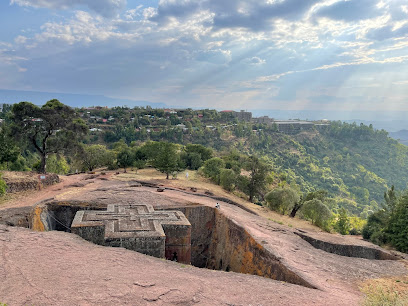
Nech Sar National Park
Explore Nech Sar National Park: where breathtaking landscapes, diverse wildlife, and rich cultural experiences await travelers in Ethiopia.
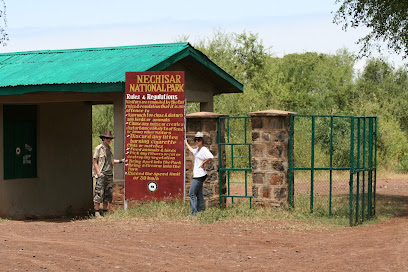
Holqa Soof Umar(Sof Omar Cave)
Explore the enchanting Sof Omar Cave in Ethiopia, where stunning limestone formations and rich cultural history await every adventurous traveler.
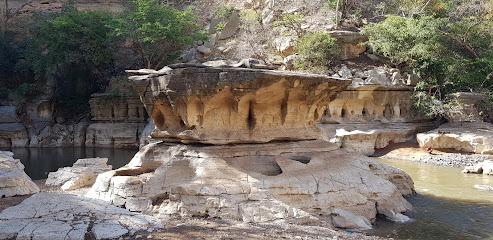
ቤተ መንግስቲ ንግስቲ ሳባ | Dungur Palace (Queen of Sheba Palace)
Explore Dungur Palace, the iconic Queen of Sheba's residence in Aksum, Ethiopia, and immerse yourself in ancient history and breathtaking architecture.
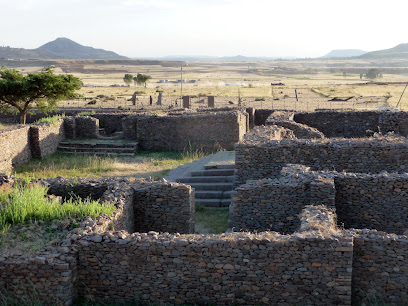
Arba Minch crocodile ranch
Explore the thrilling Arba Minch Crocodile Ranch in Ethiopia, where adventure meets wildlife conservation in a breathtaking natural setting.
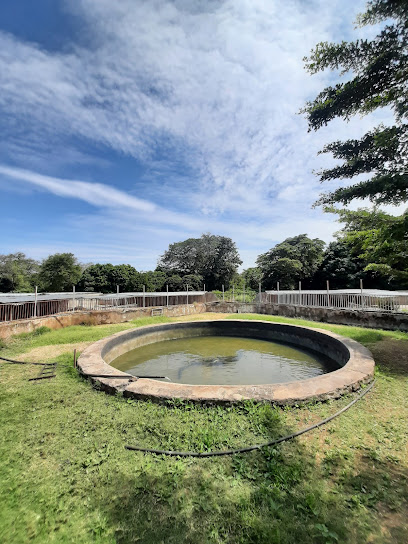
Yekatit 12 Monument ( የካቲት 12 መታሰብያ ሐውልት )
Discover the poignant history of the Yekatit 12 Monument in Addis Ababa, a symbol of resilience and remembrance in Ethiopia's rich cultural heritage.
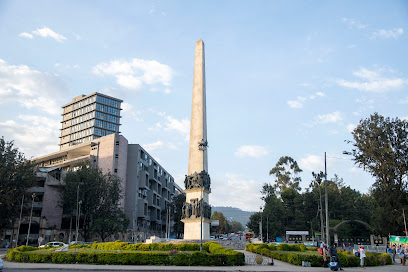
Martyrs Monument
Explore the Martyrs Monument in Bahir Dar, a powerful symbol of resilience and a tribute to Ethiopia's rich history and culture.
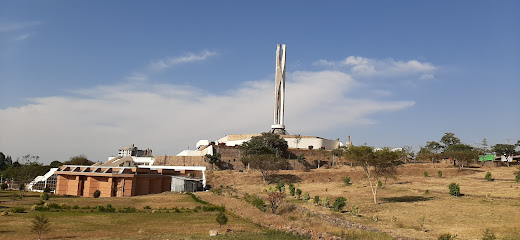
Ezana Stone
Explore the historical marvel of the Ezana Stone in Aksum, a testament to Ethiopia's rich ancient heritage and cultural significance.
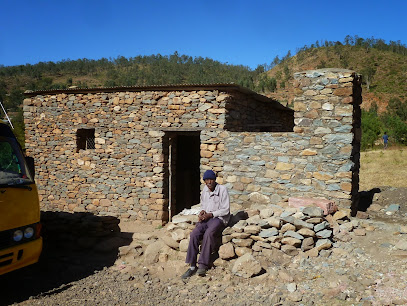
Royal enclosure- Main Entrance
Discover the Royal Enclosure in Gondar, Ethiopia—a UNESCO World Heritage Site filled with history, stunning architecture, and cultural richness.
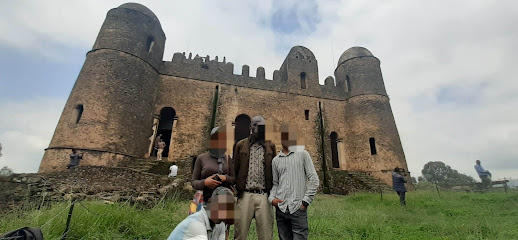
Jinka
Experience the serenity and cultural richness of Jinka, a unique Parsi temple in Turmi, perfect for spiritual reflection and exploration.
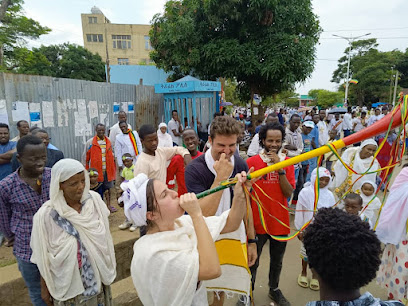
Unmissable attractions to see
National Museum of Ethiopia
Discover Ethiopia's rich history and cultural heritage at the National Museum, home to Lucy and a vast collection of national treasures.
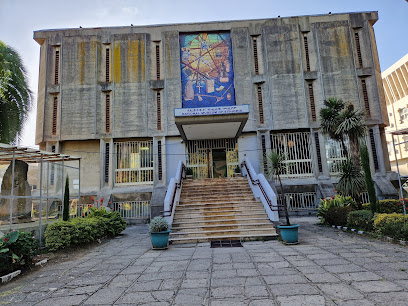
Nech Sar National Park
Explore Nech Sar National Park's breathtaking landscapes, rich wildlife, and unforgettable adventures in the heart of Ethiopia.
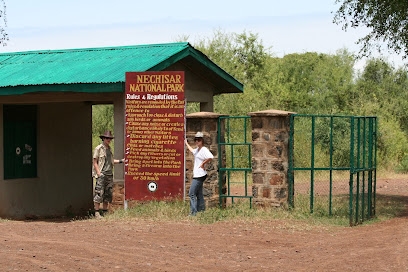
Arba Minch crocodile ranch
Observe hundreds of Nile crocodiles at this Arba Minch ranch dedicated to the conservation of these fascinating reptiles.
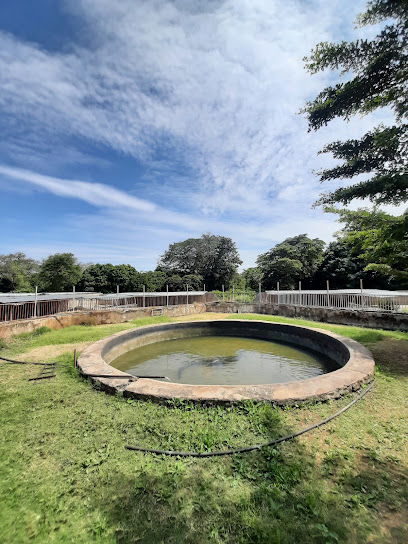
Entoto View Addis Ababa
Experience panoramic views and Ethiopian history at Entoto View in Addis Ababa, a serene mountain escape with cultural and natural attractions.
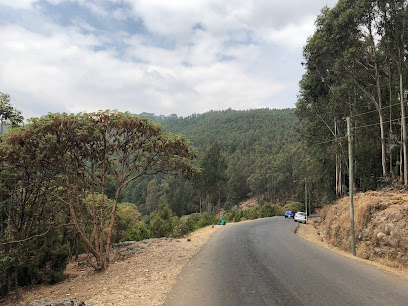
Dassenech Village
Discover the unique culture and traditions of the Dassenech people in Ethiopia's Omo Valley, a journey into a vibrant and resilient community.
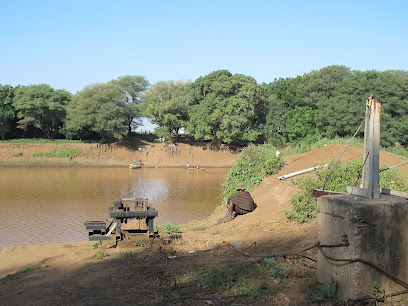
Dasench Tourist Guides Association
Explore the Omo Valley with local guides, discover Dasench culture, and support sustainable tourism in Omorate, Ethiopia.
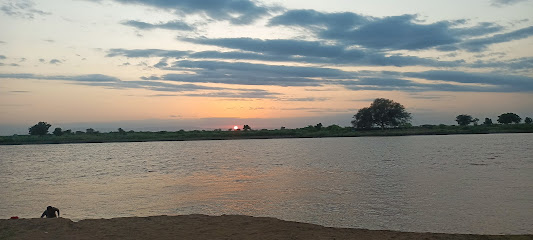
Mago National Park
Explore Mago National Park: Discover Ethiopia's wildlife, savannah landscapes, and the unique culture of the Mursi tribe.
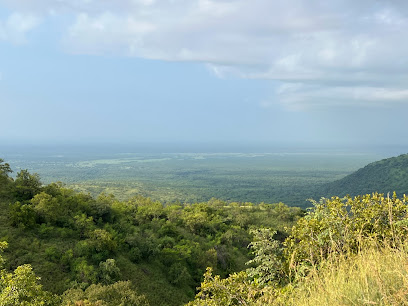
Dasanech village_
Discover the unique culture and traditions of the Dasanech people in their Omo Valley village, a journey into Ethiopia's diverse heritage.
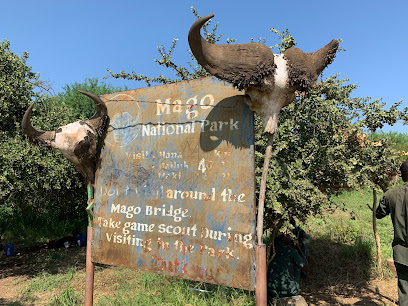
Omo Valley Tribal Guide
Discover the Omo Valley's unique tribal cultures: a journey through ancient traditions and striking visual diversity in Southern Ethiopia.
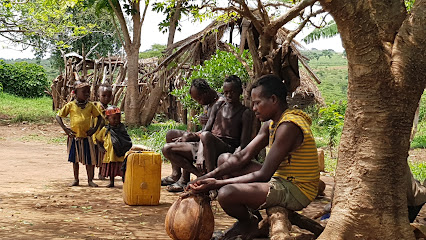
Arbore
Discover Arbore Village in Ethiopia's Omo Valley: A unique cultural experience with vibrant traditions and peaceful tribal life.
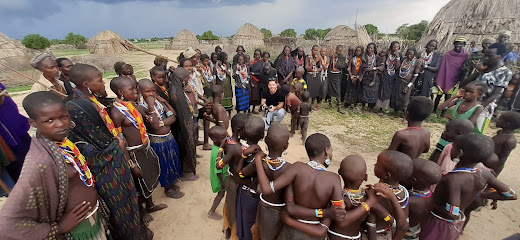
Alliance omo valley tour
Explore the rich cultures and stunning landscapes of Ethiopia's Omo Valley with Alliance Tours, an unforgettable adventure awaits.
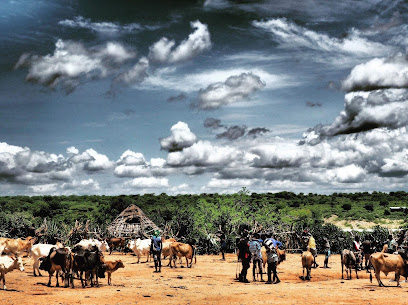
ከስኬ
Discover rural Ethiopian life at ከስኬ in Dimeka, a gateway to the Omo Valley's vibrant culture and stunning landscapes.

Essential places to dine
Kategna Restaurant
Experience authentic Ethiopian cuisine at Kategna Restaurant in Addis Ababa—where tradition meets taste.
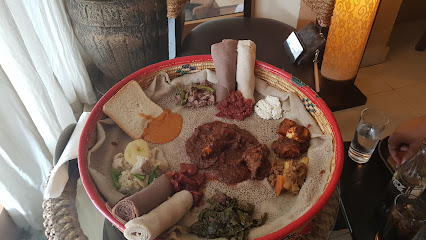
The Four Sisters Restaurant
Experience authentic Ethiopian cuisine at The Four Sisters Restaurant in Gondar—where every dish tells a story and hospitality reigns supreme.
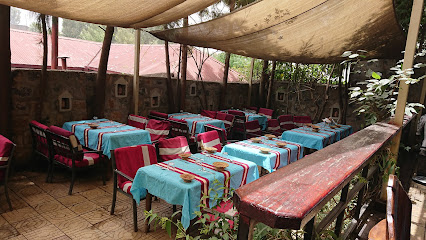
Dok Restaurant Top View
Experience authentic Italian flavors with breathtaking views at Dok Restaurant Top View in Addis Ababa.
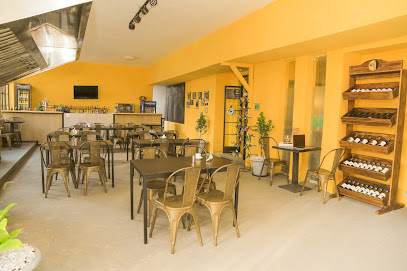
Kana Restaurant and Bar
Savor the essence of Ethiopian culture at Kana Restaurant and Bar in Lalibela with authentic dishes and warm hospitality.
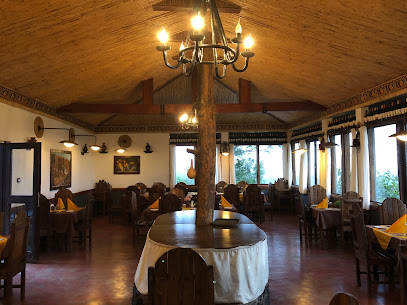
Oda-Bultum restaurant
Experience authentic Ethiopian cuisine at Oda-Bultum Restaurant in Shashemene - where every dish tells a story.
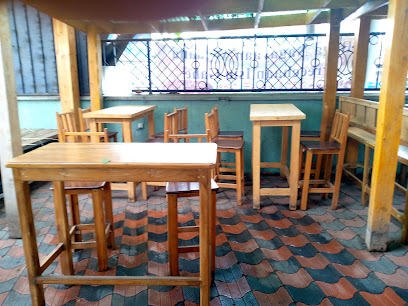
Kebe's Enat Guada
Discover the essence of Ethiopian cuisine at Kebe's Enat Guada, where traditional flavors meet warm hospitality in Turmi.
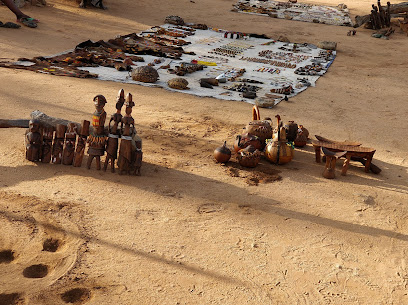
Omo Valley Restaurant
Savor authentic Ethiopian flavors at Omo Valley Restaurant in Jinka - a culinary journey through traditional dishes awaits you!
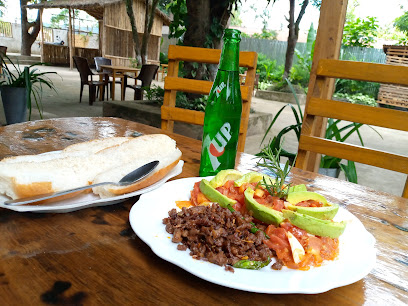
Terhim Restaurant
Discover the vibrant tastes of Ethiopia at Terhim Restaurant in Alaba Kulito - where tradition meets flavor.
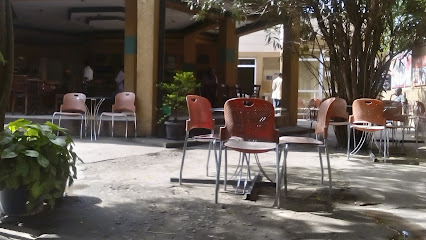
Selina restaurant
Discover authentic Ethiopian flavors at Selina Restaurant in Lalibela - where every dish tells a story.
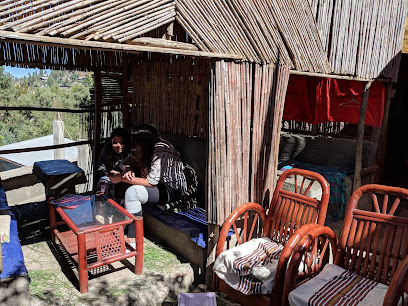
Mother Kitfo(Yegeneye)
Experience authentic Ethiopian flavors at Mother Kitfo in Welkite - a culinary journey through traditional dishes and warm hospitality.
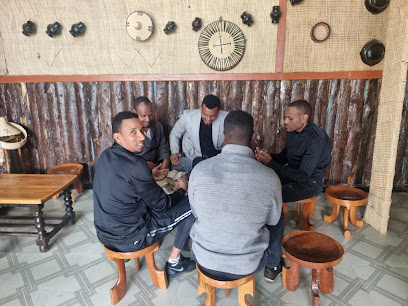
Semrete
Discover the rich flavors of authentic Ethiopian cuisine at Semrete in Jinka—an unforgettable culinary journey awaits!
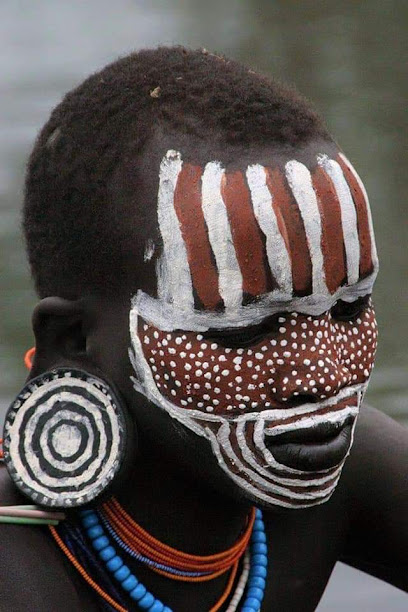
Meskrem restaurant
Discover the rich flavors of Ethiopia at Meskrem Restaurant in Jinka - where every meal is a celebration of culture.
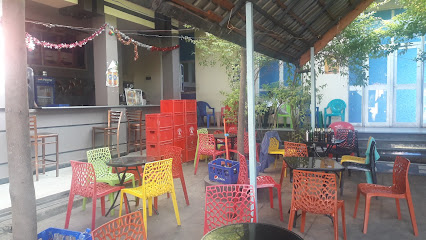
Jumani Cafe
Experience authentic Ethiopian cuisine at Jumani Cafe in Jinka – where every dish tells a story.

Meginagna Bar And Restu Turmi Ethiopia
Experience authentic Ethiopian cuisine at Meginagna Bar And Restaurant in Turmi – where tradition meets flavor in every dish.

Seni Bar and Restaurant
Discover authentic Ethiopian flavors at Seni Bar and Restaurant in Turmi – a must-visit culinary experience for every traveler.
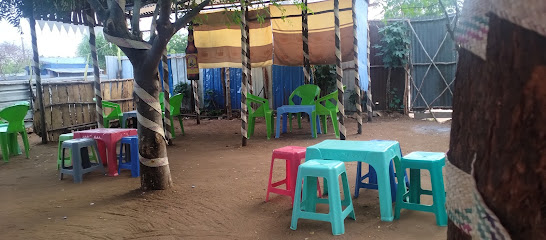
Markets, malls and hidden boutiques
Turmi Lodge
Explore the captivating Omo Valley from the comfort of Turmi Lodge, where culture, adventure, and nature harmoniously converge.

Dimeka Market
Discover the vibrant flavors and rich culture at Dimeka Market, the heart of local commerce in Ethiopia. An unmissable experience for every traveler.
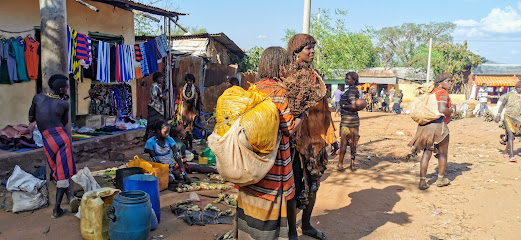
Key Afer Market
Discover the rich culture and vibrant energy of Key Afer Market, a unique destination for experiencing local traditions and flavors in Ethiopia.
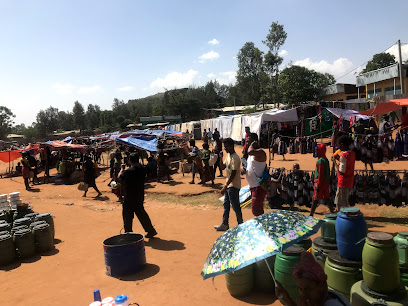
Turmi Market
Discover the bustling Turmi Market, a vibrant cultural hub in the Omo Valley, offering authentic crafts, local cuisine, and a glimpse into traditional Ethiopian life.
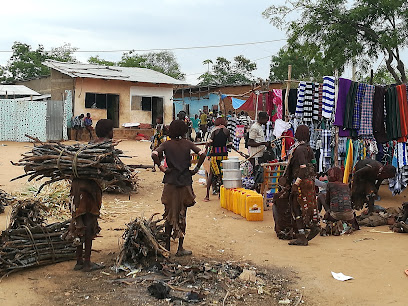
All In One Souvenir & Gift Shop
Explore All In One Souvenir & Gift Shop in Addis Ababa for unique Ethiopian gifts and crafts that tell stories of culture and heritage.
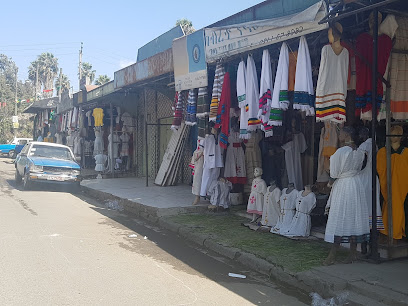
Abdi Negash Antique Store
Explore the treasures of Ethiopia at Abdi Negash Antique Store - a unique blend of antiques, art, and rare books in the heart of Addis Ababa.
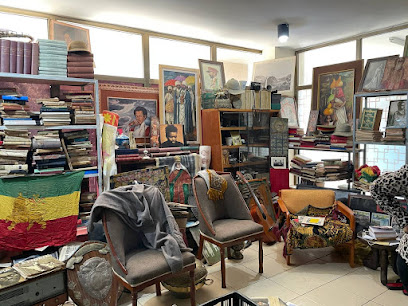
Discovery Business Center
Discover cutting-edge electronics and exceptional service at Discovery Business Center in Key Afer, perfect for tech lovers and casual shoppers alike.
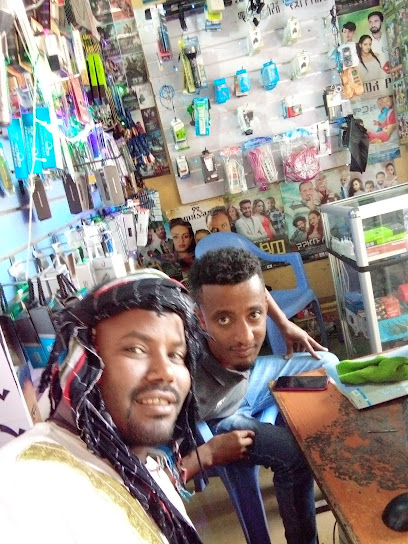
Ellilta Products
Explore the charm of Ellilta Products in Addis Ababa, where unique Ethiopian crafts and gifts await to bring home a piece of culture.
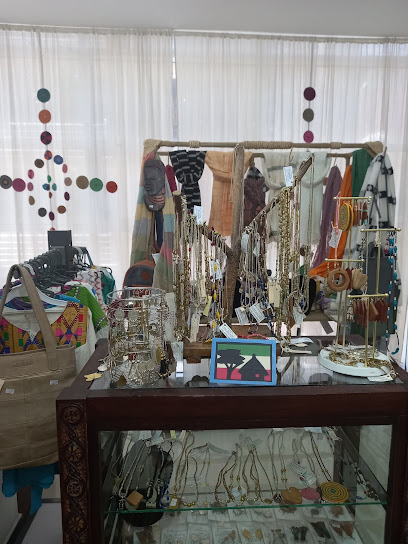
Root in Style
Discover unique, stylish bags at Root in Style, a premier destination for fashionable accessories in Addis Ababa's Century Mall.
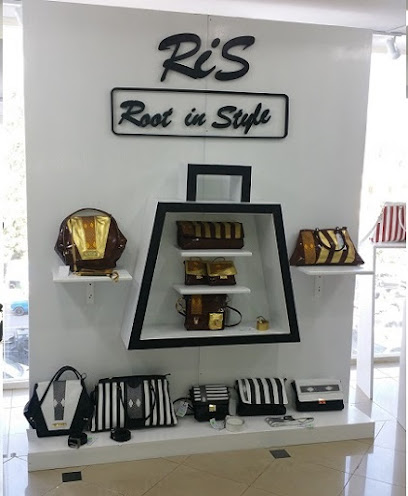
Sewali business center
Explore the Sewali Business Center in Key Afer for a unique selection of electronics and outstanding customer service.
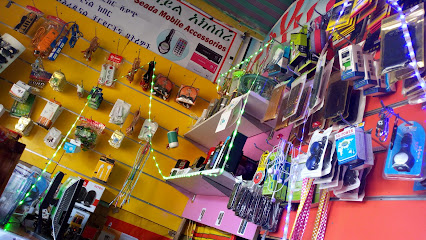
Rabiya Zenu shop
Explore Rabiya Zenu Shop in Kumbabe Town for exquisite clothing that blends traditional and modern styles, reflecting local culture and craftsmanship.
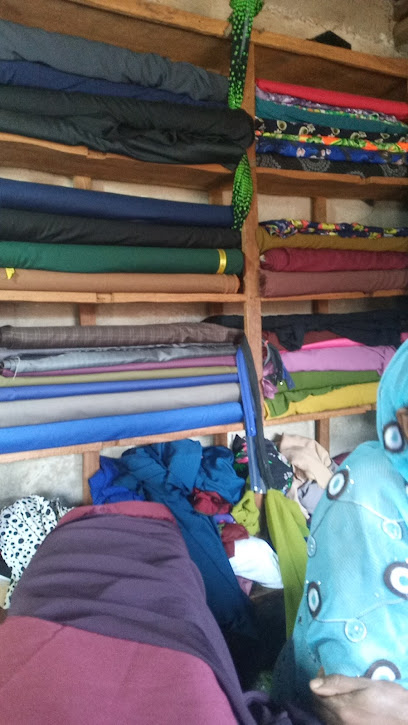
ETE Debre Home
Explore ETE Debre Home in Dimeka for unique Ethiopian home goods that reflect local craftsmanship and vibrant culture.
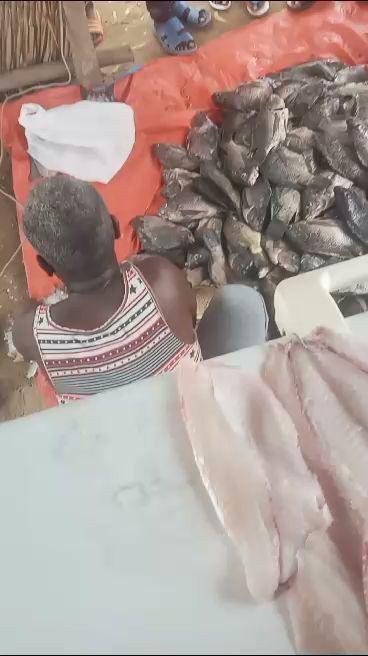
Center Of Keyafer
Experience the vibrant culture and unique home goods at the Center of Keyafer, the heart of shopping in this charming Ethiopian town.
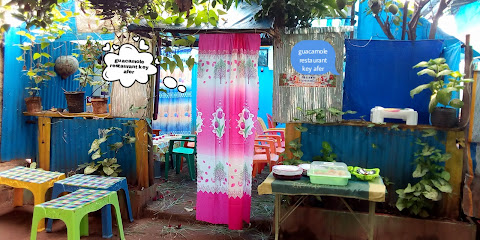
King Solution
Explore innovative software solutions at King Solution, a premier computer software store in Dimeka, Ethiopia, where technology meets culture.

Lelicho As Market Place
Experience the vibrant culture and local flavors at Lelicho As Market Place, the perfect shopping destination in Ethiopia.

Essential bars & hidden hideouts
Tourist Hotel Turmi
Discover the charm of Turmi at Tourist Hotel Turmi, where comfort meets Ethiopian culture in the heart of the Omo Valley.
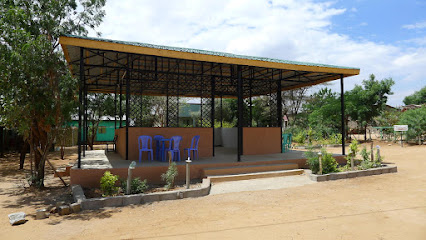
Kebe's Enat Guada
Experience the flavors of Ethiopia at Kebe's Enat Guada, a culinary gem in Turmi offering authentic local dishes in a vibrant setting.
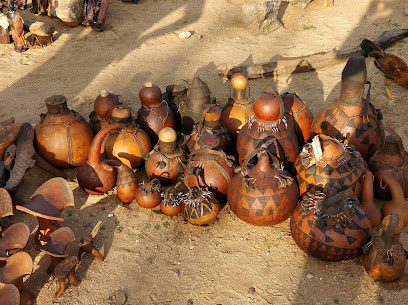
Las Vegas Hotel
Discover the lively Las Vegas Hotel in Turmi, where local culture and vibrant atmosphere meet modern comfort for an unforgettable experience.
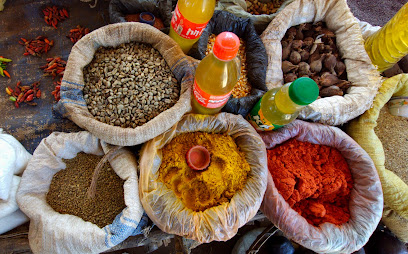
Hamer Garden
Experience the best of local Ethiopian cuisine and drinks in a tranquil garden setting at Hamer Garden in Turmi.
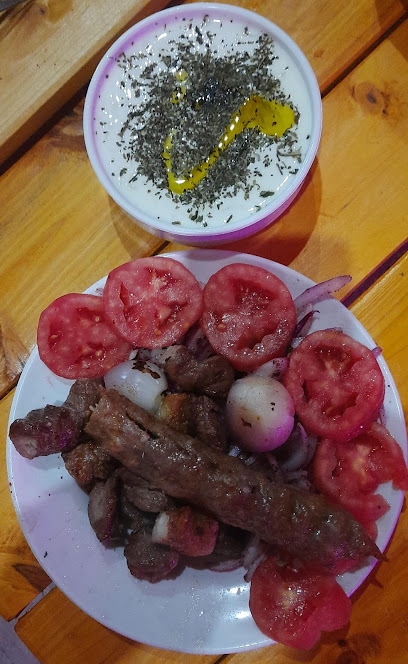
Terara Hotel
Discover the vibrant atmosphere of Terara Hotel, a local bar in Kuraz offering authentic Ethiopian drinks and lively entertainment.

Lachi home
Discover the charm of Lachi Home, a cozy bar in Dimeka offering a taste of local culture and refreshing drinks for every visitor.

Seid fast food(ሰይድ ቁርስ ቤት)
Experience authentic Ethiopian cuisine at Seid Fast Food in Turmi, where local flavors and warm hospitality come together.

MEDI SMALL BAR
Discover the lively atmosphere of Medi Small Bar in Turmi, where drinks and local culture come together in an unforgettable experience.
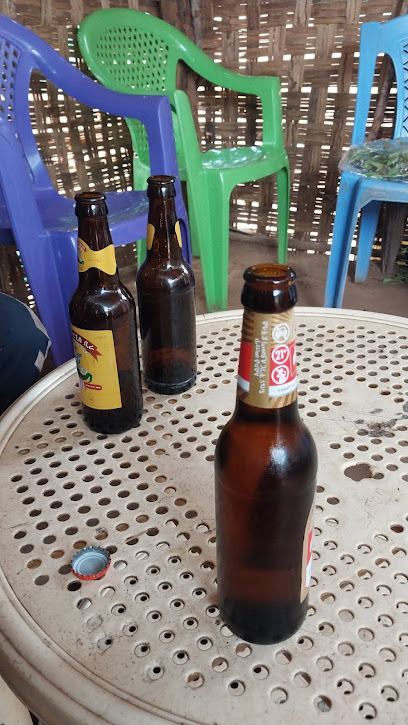
Seni Bar and Restaurant
Indulge in authentic Ethiopian cuisine at Seni Bar and Restaurant in Turmi, where local flavors and warm hospitality create an unforgettable dining experience.
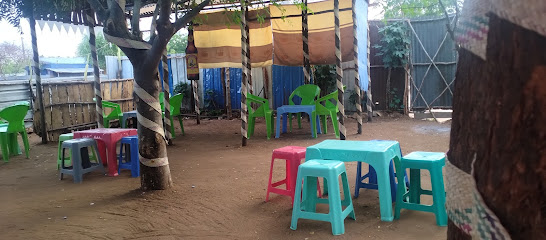
Meginagna Bar And Restu Turmi Ethiopia
Savor authentic Ethiopian cuisine at Meginagna Bar and Restaurant in Turmi, where tradition meets flavor in a vibrant atmosphere.

Local Phrases about Turmi
-
- HelloSelam
[seh-lahm] - GoodbyeGalatoomi
[gah-lah-toh-mee] - YesEe
[ee] - NoAyi
[ah-yee] - Please/You're welcomeAtam
[ah-tahm] - Thank youNagode
[nah-goh-deh] - Excuse me/SorrySamay
[sah-mai] - How are you?Yaa kana
[yah kah-nah] - Fine. And you?Menen yaa?
[meh-nen yah] - Do you speak English?Ingilizigna mi-mi?
[in-gee-lee-zee-nyah mee-mee] - I don't understandArifachin
[ah-ree-fach-een]
- HelloSelam
-
- I'd like to see the menu, pleaseMenyu aye tefachi, atam
[mehn-yoo ah-yeh teh-fah-chee ah-tahm] - I don't eat meatNege minamin yemiyam
[neh-gay mee-nah-meen yeh-mee-yahm] - Cheers!Jalalaa!
[jah-lah-lah] - I would like to pay, pleaseNagode, nege bayeche
[nah-goh-deh neh-gay bah-yeh-cheh]
- I'd like to see the menu, pleaseMenyu aye tefachi, atam
-
- Help!Balcha!
[bal-chah] - Go away!Tos!
[tohs] - Call the Police!Polis yagare!
[poh-lees yah-gah-reh] - Call a doctor!Hakim yagare!
[hah-keem yah-gah-reh] - I'm lostWaan ajaacha
[wahn ah-jah-chah] - I'm illWaan raga
[wahn rah-gah]
- Help!Balcha!
-
- I'd like to buy...Gura gura
[goo-rah goo-rah] - I'm just lookingMito gura
[mee-toh goo-rah] - How much is it?Yitay yitay?
[yee-tahy yee-tahy] - That's too expensiveYitay yitay
[yee-tahy yee-tahy] - Can you lower the price?Yitay yitay
[yee-tahy yee-tahy]
- I'd like to buy...Gura gura
-
- What time is it?Waaqti kani?
[wahk-tee kah-nee] - It's one o'clockHalkan waa halkeed
[hahl-kahn wah hahl-keed] - Half past (10)Halkan waa tarafeed
[hahl-kahn wah tah-rah-feed] - MorningWaqti fajr
[wahk-tee fah-jer] - AfternoonWaqti duhur
[wahk-tee doo-hoor] - EveningWaqti fiidna
[wahk-tee fee-dnah] - YesterdayDibbaa
[dee-bah] - TodayMaqaa
[mah-kah] - TomorrowBaga
[bah-gah] - 1Halkan
[hahl-kahn] - 2Laban
[lah-bahn] - 3Sadeesan
[sah-day-sahn] - 4Afaan
[ah-fahn] - 5Shan
[shahn] - 6Jima
[jee-mah] - 7Toban
[toh-bahn] - 8Saggo
[sahg-goh] - 9Saggo
[sahg-goh] - 10Lakk. Laba laban
[lahk. lah-bah lah-bahn]
- What time is it?Waaqti kani?
-
- Where's a/the...?Inni waa...?
[in-nee wah] - What's the address?Garaa humna kani?
[gah-rah hoom-nah kah-nee] - Can you show me (on the map)?Nagode, alatni?
[nah-goh-deh ah-lah-tnee] - When's the next (bus)?Halkan waa humnaan
[hahl-kahn wah hoom-nahn] - A ticket (to ....)Tikiti
[tee-kee-tee]
- Where's a/the...?Inni waa...?
History of Turmi
-
Turmi is a vibrant town located in the Southern Nations, Nationalities, and Peoples' Region of Ethiopia. It is known for its rich cultural tapestry, predominantly inhabited by the Hamar people. Turmi serves as a cultural hub, offering visitors a glimpse into traditional Ethiopian life, artistry, and customs.
-
The Hamar people are indigenous to this region and are renowned for their distinctive cultural practices. They have a semi-nomadic lifestyle, relying on agriculture and cattle herding. The Hamar are famously known for their elaborate ceremonies and unique hairstyles adorned with ochre and butter.
-
One of the most significant cultural events in Turmi is the Bull Jumping Ceremony, a rite of passage for young Hamar men. This ancient ritual involves the young man jumping over a line of cattle, signifying his transition into adulthood and his readiness for marriage. The event is accompanied by dancing, singing, and traditional music.
-
The Turmi market is a vibrant weekly event that draws people from various ethnic groups, including the Hamar, Karo, and Dassanech. The market is a bustling center of trade, where one can find traditional crafts, livestock, and fresh produce. It offers a unique opportunity to observe the diverse cultural interactions in the region.
-
The Omo River Valley, near Turmi, is a UNESCO World Heritage site and is home to several indigenous tribes. The valley is not only significant for its cultural diversity but also for its archaeological importance, with numerous fossils and artifacts that provide insights into early human history.
-
In Hamar society, women play a crucial role in the community. They are responsible for various domestic duties, including cooking, childcare, and contributing to the family's income through handicrafts. The women are also known for their distinctive beaded necklaces and colorful attire, which are integral to their cultural identity.
-
Music and dance are central to the cultural expression in Turmi. Traditional instruments like the masenqo (a one-stringed fiddle) and the krar (a lyre) accompany dances that are performed during ceremonies and festivals. These performances are not only a form of entertainment but also a means of preserving and passing down cultural heritage.
-
While Turmi has retained much of its traditional charm, it is not immune to the influences of modernization. Improved infrastructure and increased tourism have brought both opportunities and challenges to the local community. Efforts are being made to balance development with the preservation of cultural heritage.
Turmi Essentials
-
Turmi is located in the South Omo Zone of the Southern Nations, Nationalities, and Peoples' Region in Ethiopia. The nearest major airport is Jinka Airport, roughly 120 kilometers away. From Jinka, you can hire a private car or take a local bus to Turmi, which takes approximately 3 to 4 hours by road. Alternatively, you can fly into Addis Ababa Bole International Airport and then take a domestic flight to Jinka.
-
Turmi is a small town, and many of its attractions are within walking distance. For longer distances, local taxis and minibuses are available. Private car hire is also an option and can be arranged through local travel agencies or hotels. Roads in the area can be rough, so a 4x4 vehicle is recommended for more remote destinations.
-
The official currency in Ethiopia is the Ethiopian Birr (ETB). Credit cards are not widely accepted in Turmi, so it is advisable to carry sufficient cash. ATMs are scarce, and it is recommended to withdraw cash in larger towns like Jinka or Addis Ababa before traveling to Turmi. Small denominations are useful for local markets and tipping.
-
Turmi is generally safe for tourists, but standard precautions should be taken. Avoid walking alone at night and keep an eye on your belongings in crowded areas. While there are no specific high-crime areas targeting tourists, it's best to stay vigilant. Always travel with a guide when visiting remote tribal areas.
-
In case of emergency, dial 911 for immediate assistance, though response times may vary. The nearest major medical facility is in Jinka, so it's advisable to have travel insurance that covers medical emergencies. For minor health issues, there are small clinics in Turmi. Always carry a basic first-aid kit and any necessary medications.
-
Fashion: Do dress modestly, especially when visiting tribal villages. Avoid wearing revealing clothing. Religion: Do respect local customs and traditions. Always ask for permission before taking photographs of people. Public Transport: Do be respectful and patient, as services may not run on a strict schedule. Greetings: Do greet people with a handshake or a respectful nod. Eating & Drinking: Do try local delicacies and accept food offerings graciously. Don’t refuse hospitality, as it is considered impolite.
-
To experience Turmi like a local, visit the weekly market where various tribes gather to trade goods. Engage with the locals and learn about their customs and traditions. Don’t miss witnessing the traditional Hamer bull-jumping ceremony, a rite of passage for young men. For a unique experience, consider staying in a local guesthouse to immerse yourself in the community.
Trending Landmarks in Turmi
-
Unity Park
-
Meskel Square
-
Fasil Ghebbi
-
Simien Mountains National Park
-
Debre Birhan Selassie Church
-
Rock-Hewn Churches, Lalibela
-
Nech Sar National Park
-
Holqa Soof Umar(Sof Omar Cave)
-
ቤተ መንግስቲ ንግስቲ ሳባ | Dungur Palace (Queen of Sheba Palace)
-
Arba Minch crocodile ranch
-
Yekatit 12 Monument ( የካቲት 12 መታሰብያ ሐውልት )
-
Martyrs Monument
-
Ezana Stone
-
Royal enclosure- Main Entrance
-
Jinka
Nearby Cities to Turmi
-
Things To Do in Arba Minch
-
Things To Do in Awasa
-
Things To Do in Kitale
-
Things To Do in Lira
-
Things To Do in Mbale
-
Things To Do in Eldoret
-
Things To Do in Addis Ababa
-
Things To Do in Gulu
-
Things To Do in Nakuru
-
Things To Do in Kisumu
-
Things To Do in Debre Markos
-
Things To Do in Jinja
-
Things To Do in Naivasha
-
Things To Do in Arua
-
Things To Do in Kampala







